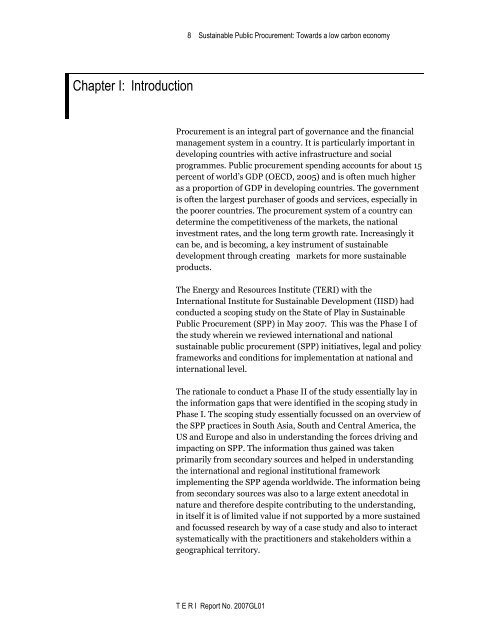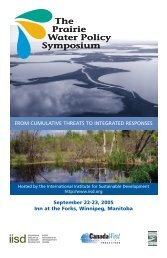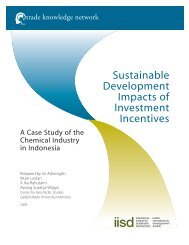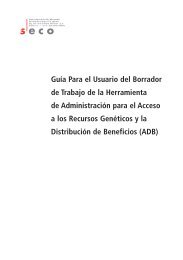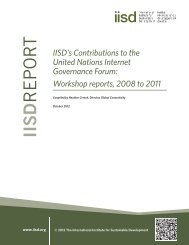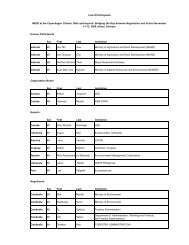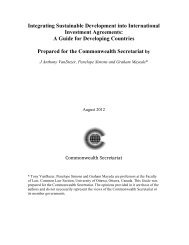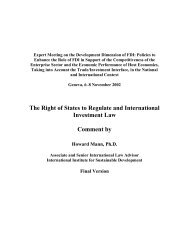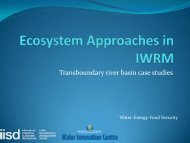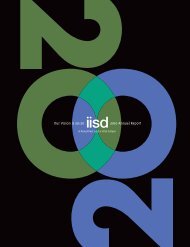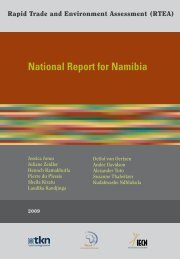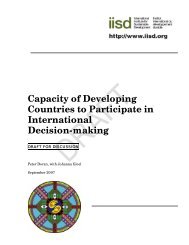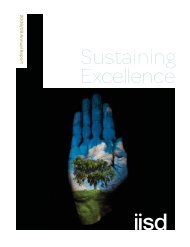Sustainable Public Procurement: Towards a lowâcarbon economy
Sustainable Public Procurement: Towards a lowâcarbon economy
Sustainable Public Procurement: Towards a lowâcarbon economy
Create successful ePaper yourself
Turn your PDF publications into a flip-book with our unique Google optimized e-Paper software.
8 <strong>Sustainable</strong> <strong>Public</strong> <strong>Procurement</strong>: <strong>Towards</strong> a low carbon <strong>economy</strong><br />
Chapter I: Introduction<br />
<strong>Procurement</strong> is an integral part of governance and the financial<br />
management system in a country. It is particularly important in<br />
developing countries with active infrastructure and social<br />
programmes. <strong>Public</strong> procurement spending accounts for about 15<br />
percent of world’s GDP (OECD, 2005) and is often much higher<br />
as a proportion of GDP in developing countries. The government<br />
is often the largest purchaser of goods and services, especially in<br />
the poorer countries. The procurement system of a country can<br />
determine the competitiveness of the markets, the national<br />
investment rates, and the long term growth rate. Increasingly it<br />
can be, and is becoming, a key instrument of sustainable<br />
development through creating markets for more sustainable<br />
products.<br />
The Energy and Resources Institute (TERI) with the<br />
International Institute for <strong>Sustainable</strong> Development (IISD) had<br />
conducted a scoping study on the State of Play in <strong>Sustainable</strong><br />
<strong>Public</strong> <strong>Procurement</strong> (SPP) in May 2007. This was the Phase I of<br />
the study wherein we reviewed international and national<br />
sustainable public procurement (SPP) initiatives, legal and policy<br />
frameworks and conditions for implementation at national and<br />
international level.<br />
The rationale to conduct a Phase II of the study essentially lay in<br />
the information gaps that were identified in the scoping study in<br />
Phase I. The scoping study essentially focussed on an overview of<br />
the SPP practices in South Asia, South and Central America, the<br />
US and Europe and also in understanding the forces driving and<br />
impacting on SPP. The information thus gained was taken<br />
primarily from secondary sources and helped in understanding<br />
the international and regional institutional framework<br />
implementing the SPP agenda worldwide. The information being<br />
from secondary sources was also to a large extent anecdotal in<br />
nature and therefore despite contributing to the understanding,<br />
in itself it is of limited value if not supported by a more sustained<br />
and focussed research by way of a case study and also to interact<br />
systematically with the practitioners and stakeholders within a<br />
geographical territory.<br />
T E R I Report No. 2007GL01


